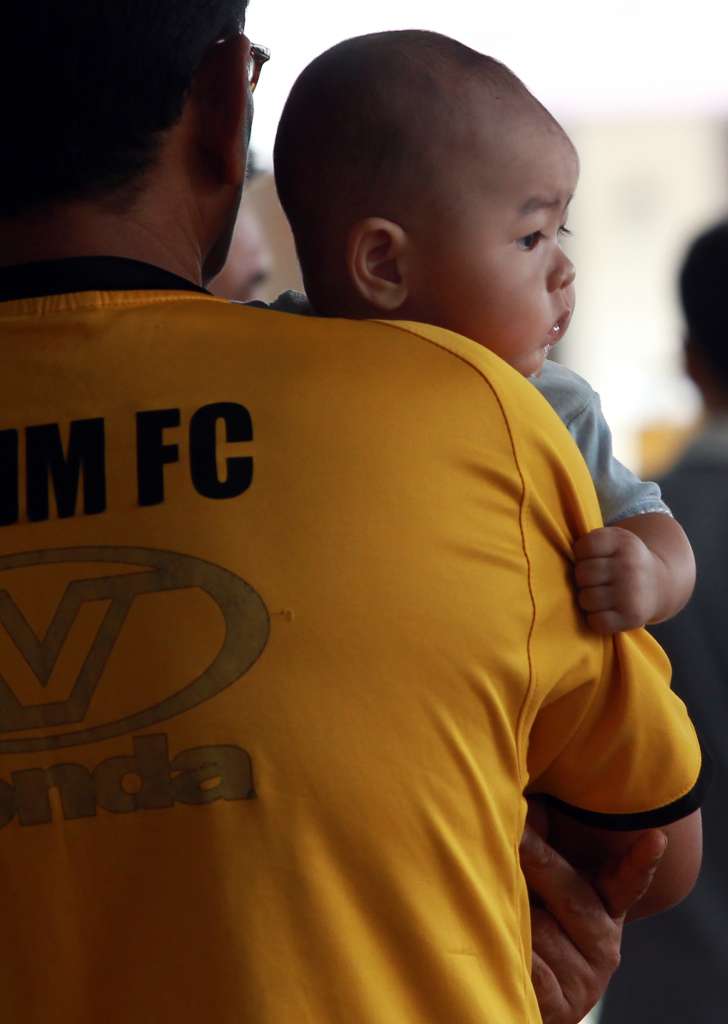Second week of paternity leave to be made compulsory: Josephine Teo
Sign up now: Get ST's newsletters delivered to your inbox

A second week of paternity leave will be made compulsory.
PHOTO: ST FILE
COPENHAGEN - Fathers will soon get more leave to spend time with their newborns.
A second week of paternity leave, now voluntary for employers, will be made compulsory in a bid to help fathers play a bigger role in parenting, Senior Minister of State Josephine Teo said.
"We are looking at when we should put this into law," she told Singapore media on Friday, at the end of a visit to Denmark and South Korea to study population policies.
Mrs Teo, who oversees population issues, also said that employers will be given adequate notice of when this policy will take effect.
When paternity leave was first introduced in 2013, they were notified of the change four months before the law kicked in: "They adjusted quite well. I'll see what I can do to give them a little more notice."
This extension of paternity leave, paid for by the Government, is one of several changes to support parenthood and help lift birth rates likely to be announced when Parliament debates ministries' plans and budgets next month.
Singapore welcomed 33,793 citizen babies last year, 600 more than in 2014, and the highest figure in 13 years. The hope is that this figure continues to increase.
There are also plans to let working mums share more of their four-month paid maternity leave with their husbands.
Couples can now share only one of the 16 weeks of this leave, and Mrs Teo feels this can be expanded especially as some mums would like to return to work sooner.
"We are in consultation with employer groups and with the labour movement. You will find out very soon," she said.
Also being studied are more childcare facilities for infants under 18 months, including by professional caregivers at homes.
The Government will also discuss making work arrangements more flexible with employer groups and labour unions.
Several companies have expressed concern about these moves raising business costs, but Mrs Teo said such pro-family policies had to be seen from a broader perspective.
She recounted how she had, over the past week, asked South Korean and Danish employers why they were supportive of such policies.
"The response from the employers was very consistent: because it makes good business sense.
"If we're able to fulfill this aspiration of employees to achieve better work-life balance, to meet their requirement of having more flexible work arrangements, then we stand a better chance of getting more talented employees and that is good for business," she said.
Mrs Teo said ultimately, there is no silver bullet to raise birth rates.
The Government can do much such as provide affordable, quality childcare, but community support - especially from employers - is key.
She noted that while both Korea and Denmark have similar policies for paternity leave, 60 per cent of Danish dads use it, while less than 2 per cent of Korean dads do so.
In Singapore, about 40 per cent of dads used paternity leave last year.
Denmark's total fertility rate (TFR) is 1.69, while South Korea's is 1.21, slightly below Singapore's 1.25.
MP Seah Kian Peng, chairman of the Government Parliamentary Committee for Social and Family Development and a board member of the Centre for Fathering, welcomed the move to legislate the second week of paternity leave.
Most employers will otherwise take the easy way out of not giving it, he said. "This little nudge will hopefully go some way towards stronger families and boosting our TFR. Every bit helps."


